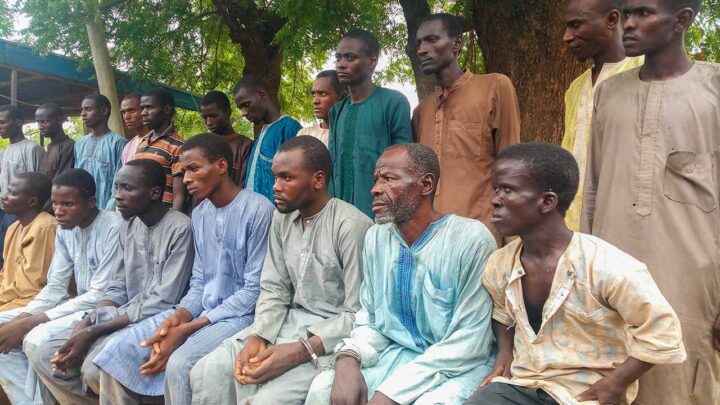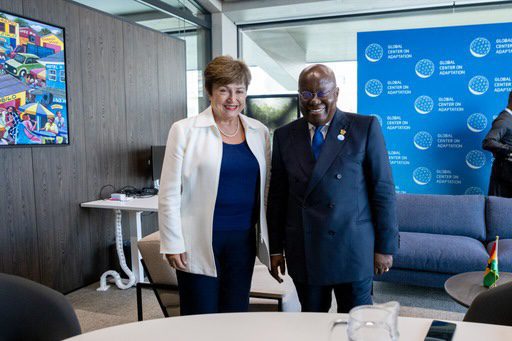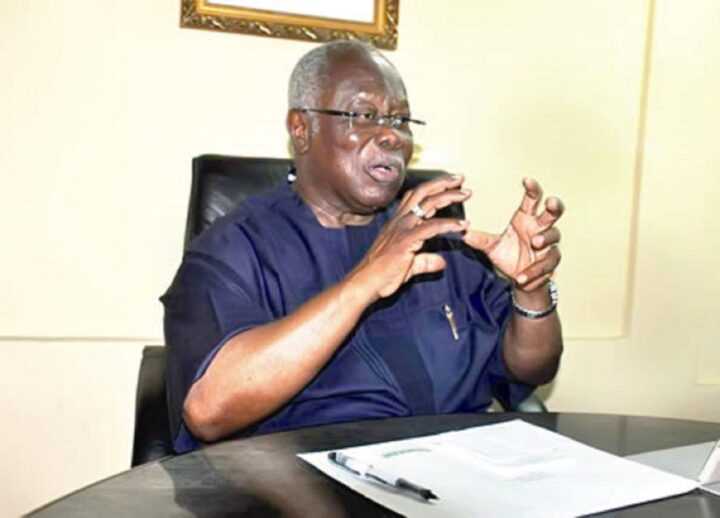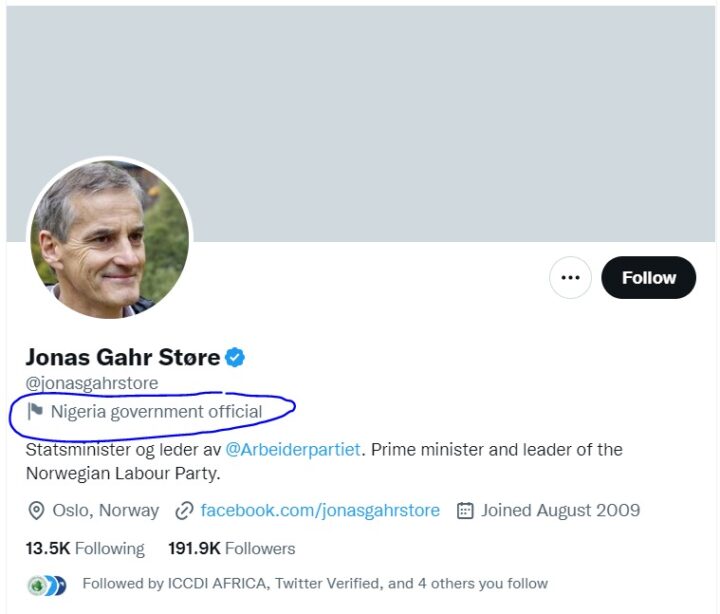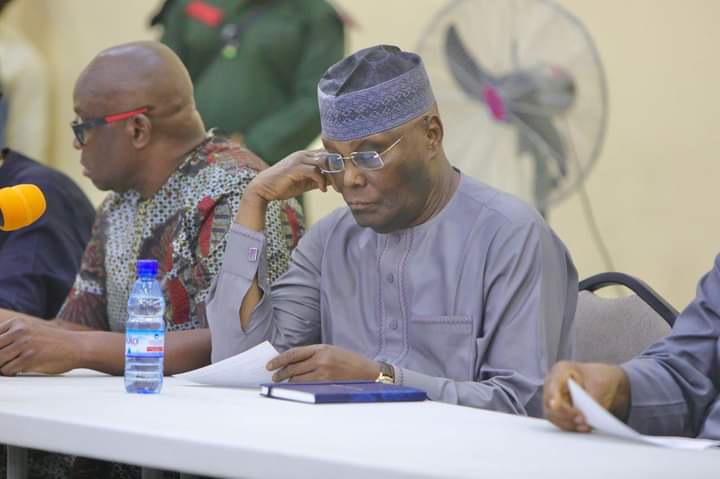Former President Olusegun Obasanjo has written several letters throughout his lifetime. From his years as a military officer, to when he was the head of state, to when he served as a civilian president and even after leaving office, Obasanjo used letters to tell truth to power. He also used letters to fight the apartheid era in South Africa. But most of these letters were confidential documents because they were not made public.
In this interview with TheCable’s SAMUEL AKPAN, Musikilu Mojeed, PREMIUM TIMES’ editor-in-chief and author of “The Letterman”, explained how he got the inspiration to write the book, the difficulty he encountered while trying to get letters written by the former president and how the public will benefit from reading the book.
TheCable: How did the idea of the book originate?
Mojeed: The idea of writing this book came to me by accident. We were doing a story in 2014. So, I went to Abeokuta to interview Obasanjo. After we finished the interview, I asked him about the progress of the presidential library he was building. You recall that before he left office, he came up with the idea of building a presidential library which made him raise quite some money at the time. When I asked him about the progress of the project, Obasanjo was happy about the inquiry. Our earlier conversation during the interview was a bit stormy. He wasn’t quite happy with some of the questions that I asked him. But once I asked him about the library, I think he was excited about it; his face became animated. He said, “We have gone far”. He offered to take me on a tour of the library if I were not in a hurry to leave Abeokuta. I didn’t wait to be persuaded to accept. He asked me to come into his car and then he drove me to the library and took me around — from the hotel to the library complex and to the archive.
Advertisement
The library was not open to the public because it had not been completed at the time. When we got to the building holding the archive, I saw thousands of books and documents dating back to when he was in the army, to when he was the head of state, to his post-head-of-state era, to when he was president. I also saw lots of letters. Some of these letters were in boxes, some were already faded, some were handwritten, and so on. But I was more interested in letters because naturally, I love reading letters. As a young person, I loved writing letters to people. So, I was more interested in the letters. I pulled one of the boxes, flipped through a few letters, and then Obasanjo left with his aides. I dropped the box, and I followed him.
My appetite was sufficiently whetted that I needed to return to this library. But I couldn’t because I had so much work. It was in 2016 that I returned to the library. I sought permission from officials of the library that I wanted to research. I didn’t tell them I wanted to read letters. They told me the library was not open to the public, but I could do limited research.
On my first research visit, I spent an intense three days looking at and reading several letters in the library and taking notes — copying out some of the letters.
Advertisement
By the time I read a number of letters, I knew I had a treasure on my hands. Initially, I was thinking those letters could form the basis of great exclusive stories, but when I read them, I said no – these are not just letters for stories, but they can form the basis of a good book and historical analysis of the different era that Obasanjo had passed through. That the book can be used to tell the story of his life, Nigeria and Africa — which is what I have done.
TheCable: How long did it take you to write the book?
Mojeed: By the time I visited in 2014, I was already interested in the work, but I wasn’t convinced about how viable it would be until 2016. It was in December 2016 that I actually began to search the library. So, I started talking to people, looking for letters that were public. I started collecting letters, some from some books. If you look at that, it took like seven to eight years of research. I didn’t get all the letters from the library — some were from databases, some from people that he wrote to, and some from books.
TheCable: Did you share the thought of writing the book with anyone, and what was the response?
Advertisement
Mojeed: The only person that I later discussed it with was the publisher of Premium Times, Dapo Olorunyomi.
I said to him, “see some of the things I’ve found – I would really like to do a book on it”. He encouraged me to do so and that it was really necessary. He helped shape the idea and how to execute it. That was the only person I mentioned it to. I didn’t even mention it to Obasanjo, because the Obasanjo that you know, tells his own story. He writes his story the way he thinks it should be. I was not sure that Obasanjo would agree that somebody should use resources from his library to tell his own story for him. So, I thought I should just go ahead and do it on my own. I didn’t seek his permission.
TheCable: You talked about not getting access to the letters. How did Obasanjo react when you told him the book was ready for publication?
Mojeed: He was quite surprised. But I suspected even before I took the book to him that he had heard that I was finalising a book related to him because I contacted Emeka Anyaoku who was secretary-general of the Commonwealth — one of the world’s most prominent persons – to write a foreword for the book. I suspect that Chief Anyaoku may have told him. But I am not sure that he was privy to the exact content of the book until I took copies to him.
Advertisement
TheCable: Which of the letters did you find most striking?
There are so many of them but the ones that shocked me most were the letters to Gowon. I call them “piercing war letters to General Gowon”. And you can see that this is just a divisional commander writing to the commander-in-chief in very strong language, talking to him as if they were either equal — talking about how unserious they were about seeking a solution to the problem in the country or ending the war.
Advertisement
You could see that he (Obasanjo) exhibited a whole lot of courage. So, I am really surprised at the courage that Obasanjo exhibited as a divisional commander, speaking so candidly to the commander-in-chief. You can only imagine if that can happen in today’s Nigerian army.
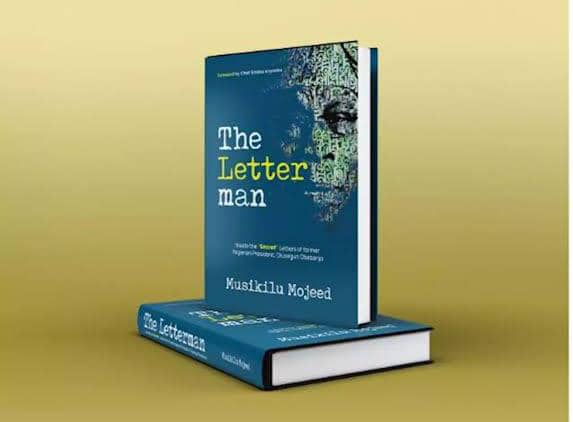
Advertisement
TheCable: In a world where letter writing is not as popular as it used to be, what would you say is the significance of Obasanjo’s letter-writing art?
Mojeed: The letters were written at certain times in the history of our country and so it provides clarity to some issues in the historical analysis or in the historical evolution of our country. They were relevant; they were written in response to certain development in our country at the time. So, it provides a bit of clarity. For instance, the letters to Gowon showed the way army officers were. How they were contending with forces and contending with ideas on how to win the war and the kind of clashes and counter-clashes among army officers on how to defeat Biafra. Another case was how Obasanjo used letters to fight the apartheid government in South Africa.
Advertisement
The letters provide context to some of these issues. But far more than that, you see that these letters helped us to understand that Obasanjo is pretty consistent in the way he has behaved since he was a young man. The way he responds to issues now is not much different from the way he did in the past.
TheCable: How difficult was the research effort you put into the book, did you feel like giving up at any time?
Mojeed: Of course, especially because I also have a very tight schedule. I have my daily work to do. It was difficult. I didn’t get kind cooperation from the staff of the library when they became aware that I was more interested in letters. But I didn’t give up because I was committed to executing this project in order to get to the end of it. So, I just kept trying. In fact, apart from the letters that I sourced from the library, I got some other letters from intense research. I was told that certain letters were in certain books — I looked for the books. Or if I read in the papers that at a certain time he wrote a letter, I would start looking for the books, and if the person is still alive, I will contact the person and say: do you still have this letter?
TheCable: How do you think the public will benefit from reading the book?
Mojeed: It is to know Obasanjo better. You’ve told me your name and where you work but that is not sufficient to know about what drives you, where you grew up, your values, the norms that you hold dear, the consistency in your behaviour, at what point you changed, and how you behaved.
This book will allow a lot of us to really look and know more about Obasanjo — for good or for evil. These letters were written when he didn’t envisage he would be head of state or president; he didn’t envisage he would live this long to write a letter to Jonathan. They were written in response to certain events. You can see how Obasanjo responds to certain events at a certain time in his life in the history of our country.
I think that knowledge is important. That is what this book offers.
TheCable: What is your perception of Obasanjo’s leadership style whether as a military or civilian ruler?
Mojeed: This book is not about Obasanjo’s leadership style. I’m not interested in looking at that. Maybe that would be another project to look at.
My interest was to look at how he behaved at certain points in his life, especially when he was the GOC of the 10 marine commando; when he was head of state between 1976 and 1979; how he behaved when he was out of power between 1979 and 1999 when he returned to power.
But you could see when you read these letters that Obasanjo is really patriotic. You can see that even when he was in prison, he was asking people to keep praying for Nigeria. This is something that you see from his letters when he was a young army officer through when he was head of state. Consistently, he demonstrates patriotism and love for his country. Obasanjo also demonstrates a knack for record-keeping. If you visit his presidential library, you will understand what I’m talking about.
One of the first memos that he wrote to officers and men of his division was to encourage them to keep war diaries and to submit whatever records they have kept about the war from their different locations. And you could see that Obasanjo made use of records that he collected. After the war, he wrote the book ‘My Command’, from the records that he collected during the war.
He also wrote the book ‘Not My Will’ from records he collected from his time in office. When he served again between 1999 and 2007, some years down the line, he wrote: ‘My Watch’ — very voluminous, three-volume book. So, Obasanjo believes in record-keeping — which is why you see that he has now established a presidential library where he keeps all those records for use. I think it is something that we all need to learn and imbibe.
If you read this book, you will also see that Obasanjo believes in transparency. I didn’t know that. You can see that right from the war front, Obasanjo insisted on transparency, and officers seen to be corrupt were severely punished. For instance, when Obasanjo arrived at the war front, one of the first letters that he wrote to officers and men of his division was that they should stop buying articles from the war front. You know before Obasanjo arrived, officers and men would claim they bought abandoned cars and shipped them back home to their people.
When Obasanjo came, he said no. ‘How can we be sure that you bought this? You are in a war, how can we be sure that you are not depriving their owners of them? You should stop. No officer is allowed to buy any article from the war front. If you buy or if you are caught with any article, we have no way of knowing that you bought it or you looted it’.
You will also see in the book that officers were serially punished for acts of misconduct, corruption, and all of that. You can argue that maybe that was why when he came this time in 1999, one of the first actions he took was the establishment of the Independent Corrupt Practices and other Offences Related Commission (ICPC), Economic Financial Crimes Commission (EFCC), Fiscal Responsibility Commission and Bureau of Public Procurement. These are all anti-corruption agencies that he formed. Meaning that there is a bit of consistency. I’m not saying he is a perfect man, but you can see that right from when he was young.
People think Obasanjo is mean. But Obasanjo can be very appreciative. Some of the letters he wrote were just responses to the telephone call you made to him. If you visited him, he would thank you. If you say good things about him, maybe in the papers, he could just write to you to thank you for that.
TheCable: Were there letters you tried to get but couldn’t find them?
Mojeed: Yes. There were a number of letters. It was either people writing to him and I didn’t know how he responded or he wrote to people and I didn’t know how these people responded. These things were missing. I tried to find some of them.
For instance, when Obasanjo was in office, Ojukwu wrote to Obasanjo from the country he was under political asylum to be allowed to return home. You would see those letters. But I didn’t find how Obasanjo responded. I tried to look for it.
Although I didn’t bother to indicate in detail the letters written to him by his parents and his children, but some of them were responses to letters written by Obasanjo earlier but I didn’t see the letters. It would have been interesting to see what Obasanjo said to his parents that elicited these responses.
There were other letters that you would see that Obasanjo was responding to certain things but you will not see what these issues really are.

